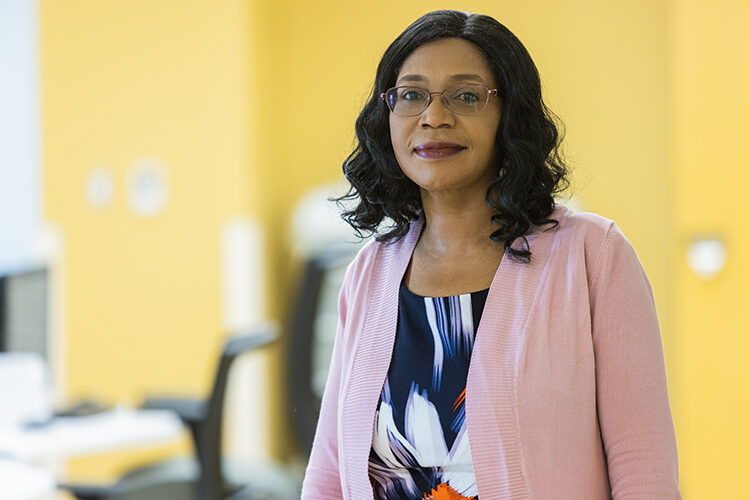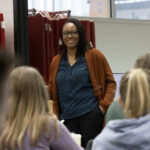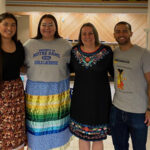UWM’s College of Nursing is working to increase the number of sexual assault nurse examiners, which are in short supply both in Wisconsin and nationwide.
The effort will be via a new program, launching April 22, funded by a grant from the U.S. Department of Health and Human Services.
A sexual assault nurse examiner (SANE) nurse is a registered nurse with specialized training and education to work with patients who have experienced sexual assault, abuse or incest.
These nurses receive specialized training in forensics because of legal issues involved, according to Penninah Kako, associate professor of nursing, project director and principal investigator for the project. In addition to increasing the number of certified nurse examiners, the UWM project is focused on preparing nurses in culturally responsive care.
“Unfortunately, Black and Indigenous women suffer the most,” Kako said. LGBTQIA+ people are also among those who are also marginalized, she added. Black and American Indian women and LGBTQIA+ people experience sexual assault at disproportionately higher rates compared to their white, cisgender or heterosexual counterparts, according to Kako.
About 370 in Wisconsin
Currently in Wisconsin there are approximately 370 nurses who are trained to be adult/adolescent sexual assault nurse examiners. Of those trained, fewer than 100 are certified through the International Association of Forensic Nurses, and only a small number come from Black, Indigenous and other marginalized populations. SANE nurses who are certified must demonstrate the highest standards of forensic nursing practice, according to the International Association of Forensic Nurses.
“This program was created with expertise of three practicing sexual assault nurse examiners to provide trauma-informed, culturally relevant and sensitive care to these populations,” Kako said.
Several partners in urban and rural Wisconsin are working with the project team to help meet the needs of Black, Indigenous and other marginalized populations.
Doctoral students and sexual assault nurse examiners Jacqueline Callari Robinson, Kaylen Moore and Ashley Ruiz developed the initial ideas for the program development. The training will be offered primarily online, but will also include a clinical skills lab.
Laura Bennett, teaching, learning and technology manager, and Linda Wesp, assistant professor of nursing, worked with sexual assault nurse examiners Kim Curran and Courtney Bouthilet, coordinators of the program, to develop the final online curriculum through a lens of cultural safety for Black, Indigenous and LGBTQIA+ populations. Lucy Mkandawire-Valhmu, professor at the University of Minnesota, is co-principal investigator in the project.
Mentoring to alleviate burnout
The program will also include mentoring, which is vital because the challenging work can lead to burnout, Kako said.
“It’s really hard work to provide care for traumatized survivors,” Kako said. “Nurses are trained, they come in, but then they leave. The attrition is high.”
Bennett added: “Each time they encounter a patient, they’re having to live through that patient experience. So it’s not only a skill set in terms of the physical things you need to learn to do, but there’s a huge emotional and psychological component.”
The nurse examiners also have to be able to work with those who prefer not to report sexual assault or abuse, sometimes because of previous difficult experiences with law enforcement or other reasons. In these cases, the nurse examiners have to be able to guide those who’ve been assaulted to resources that can help them heal, Kako said.
The first group of nurses starting the program will go through the 12 online modules in about two months, including a day of clinical lab experiences at UWM’s nursing simulation centers.
The goal, said Kako, is to train 10 nurses the first year and grow that to 40 nurses by the end of second year. The curriculum will provide a pathway to certification by the International Association of Forensic Nurses.







